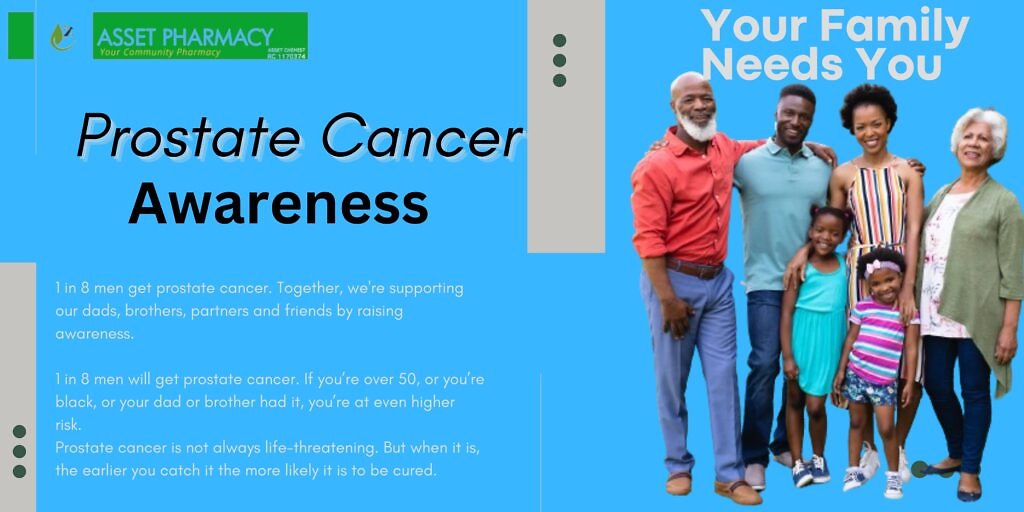
Your Family Needs You – Prostate Cancer Awareness
Your Family Needs You – Prostate Cancer Awareness
Prostate cancer is a critical health issue that affects many men worldwide, and Nigeria is no exception. Statistically, 1 in 8 men will be diagnosed with prostate cancer during their lifetime. For men over 50, those who are black, or those with a family history of prostate cancer (such as a father or brother who had the disease), the risk is even higher. Understanding and addressing this risk is crucial for maintaining your health and ensuring you are there for your family.
Understanding Prostate Cancer
Prostate cancer originates in the prostate gland, a small walnut-shaped gland in men that produces seminal fluid. It is one of the most common types of cancer in men. The good news is that prostate cancer is not always life-threatening. Many cases grow slowly and may not cause significant harm. However, when prostate cancer is aggressive, it can spread quickly and become life-threatening. This is why early detection is so important.
Why Early Detection Matters
The key to successfully treating prostate cancer lies in catching it early. When detected in its early stages, prostate cancer is more likely to be treated effectively and cured. Regular screenings and being vigilant about any changes in your health can make a significant difference. Early detection often involves:
- PSA Test (Prostate-Specific Antigen Test): This blood test measures the level of PSA in your blood, which can be an indicator of prostate cancer.
- Digital Rectal Exam (DRE): A healthcare provider manually examines the prostate gland for abnormalities.
Risk Factors
Several factors increase the risk of developing prostate cancer, including:
- Age: Men over 50 are at a higher risk.
- Race: Black men are at a higher risk compared to men of other races.
- Family History: If your father or brother had prostate cancer, your risk is higher.
Understanding these risk factors can help you and your healthcare provider decide when to start screening and how often to repeat it.
Symptoms to Watch For
Prostate cancer may not show any symptoms in its early stages. However, as it progresses, you might notice:
- Difficulty urinating
- Decreased force in the stream of urine
- Blood in the urine or semen
- Pain in the pelvis or lower back
- Erectile dysfunction
If you experience any of these symptoms, it’s important to consult with a healthcare provider promptly.
Taking Action
Here are steps you can take to protect yourself:
- Get Regular Screenings: Talk to your doctor about when to start screening for prostate cancer. Regular check-ups can help detect any early signs.
- Know Your Family History: Inform your healthcare provider if you have a family history of prostate cancer. This information can guide your screening schedule.
- Maintain a Healthy Lifestyle: A balanced diet, regular exercise, and avoiding smoking can contribute to overall health and reduce cancer risks.
- Stay Informed: Educate yourself about prostate cancer and stay updated on the latest research and recommendations.
Conclusion
Prostate cancer awareness is essential for all men, especially those in high-risk groups. By understanding the risks, recognizing symptoms, and prioritizing regular screenings, you can significantly improve your chances of catching the disease early and successfully treating it. Remember, your health is not just about you – your family needs you. Taking proactive steps to protect yourself from prostate cancer ensures you can be there for them, now and in the future.
Stay vigilant, stay informed, and take action for your health. Your family is counting on you.

